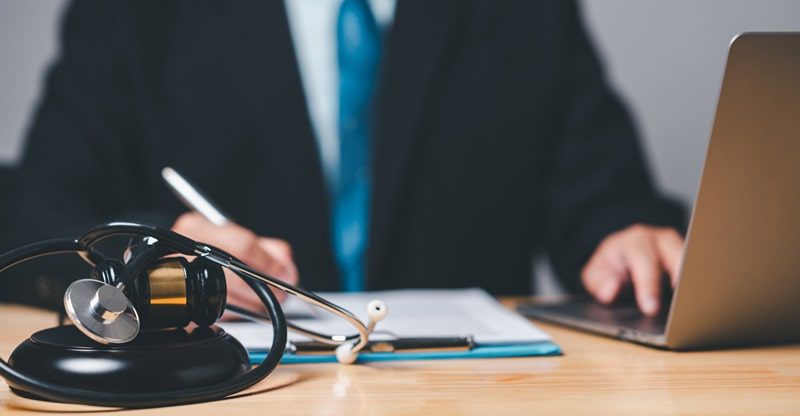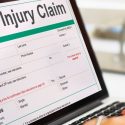The Role of Liability in A Personal Injury Case: Identifying Responsible Parties
In the tranquil town of Port Richey, accidents can happen unexpectedly, leading to personal injuries and life-altering consequences. From car collisions on bustling highways to slip-and-fall incidents in local establishments, the residents of Port Richey are not immune to the potential harm caused by medical malpractice or defective products.
These accidents can leave victims with physical injuries, emotional distress, and significant financial burdens. Identifying the at-fault parties in a personal injury case becomes paramount in pursuing justice and fair compensation. Port Richey has experienced a surge in individual injury cases, with a 25% increase in accidents reported last year alone.
This article delves into the critical role of liability in personal injury cases, exploring the process of identifying responsible parties and the steps victims can take to seek rightful compensation for their damages.
Understanding these essential elements can be invaluable in navigating the complexities of personal injury litigation and securing a favorable outcome in Port Richey’s legal landscape. For expert guidance in such cases, victims can rely on the support of a reputable personal injury law firm that advocates for their rights and interests throughout the legal proceedings.
What Is Liability?
Liability refers to legal responsibility or accountability for an action or omission that causes harm or damage to another person. In other words, it means that a party has done something wrong or failed to do something they should have done.
There are two types of liability in personal injury cases: negligence and strict liability.
- Negligence occurs when someone acts carelessly or fails to take reasonable precautions that result in harm. For example, if a driver runs a red light and hits another car, causing injuries to its occupants.
- Strict liability applies when someone is held accountable, regardless of fault. It typically arises in product defect cases where manufacturers are liable for any defects caused by their products, even if they didn’t intend them.
Role of Investigations in Proving Liability
Investigations are crucial in personal injury cases, serving as a cornerstone in establishing liability and seeking rightful compensation. Let’s explore the essential aspects of these investigations and how they contribute to the pursuit of justice for victims of accidents and injuries.
A. Importance of Prompt Investigations
Prompt investigations are crucial to preserve evidence and establish liability in personal injury cases. Time-sensitive evidence, such as skid marks at the accident scene or witness recollections, can fade or become less reliable. Initiating investigations soon after the incident helps ensure that critical evidence is collected before it is lost or altered.
Additionally, prompt investigations allow victims to gather witness statements while memories are fresh, increasing the accuracy of the information provided. A swift and thorough inquiry sets the foundation for building a solid case and seeking fair compensation.
B. Techniques Used in Personal Injury Investigations
Personal injury investigations involve various techniques, including threat detection, to uncover facts and establish liability. Investigators may visit the accident scene to document physical evidence, take photographs, and gather measurements. They may also obtain and analyze medical records to understand the extent of injuries and connect them to the accident. Witness interviews play a significant role in gathering first-hand accounts of the incident.
Moreover, digital evidence, such as surveillance footage, vehicle data recorders, or electronic communication records, can provide crucial insights into the accident’s circumstances. A comprehensive approach combining these techniques and threat detection helps paint a clear picture of what happened and who may be liable.
C. The Role of Law Enforcement and Experts
Law enforcement plays a critical role in the initial investigation of personal injury cases. Officers often arrive at the accident scene promptly to secure the area, gather preliminary evidence, and interview involved parties and witnesses. Their accident reports become valuable sources of information for both the victims and insurance companies.
Experts may be brought in to provide specialized knowledge in complex cases, such as accident reconstruction experts, medical professionals, or forensic specialists. These experts offer unbiased analyses and opinions, aiding in determining liability and strengthening the case presented in court.
Handling Liability Disputes and Defense Strategies
When faced with liability disputes and defense strategies in personal injury cases, navigating the complexities of the legal process becomes crucial for all parties involved. Let’s delve into the challenges, common defense strategies, and the significant role of expert witnesses in handling these essential aspects of personal injury litigation.
A. Challenges in Proving Liability
Proving liability in personal injury cases can be challenging, as the opposing party may deny fault or raise disputes regarding the extent of responsibility. Accidents involving multiple parties or complex situations may lead to liability disputes, making it necessary for victims to present a well-documented case supported by solid evidence. Challenges can also arise when dealing with insurance companies that may try to minimize their liability to reduce the compensation amount.
B. Common Defense Strategies Employed
Defense strategies often used in personal injury cases include asserting comparative negligence, where the victim’s actions allegedly contributed to the accident, and arguing the assumption of risk, stating that the victim voluntarily accepted the potential risks involved.
The defense may also challenge the credibility of witnesses or the accuracy of evidence presented by the plaintiff’s side. Experienced defense attorneys may employ various tactics to weaken the plaintiff’s case and limit their client’s liability.
C. The Role of Expert Witnesses in Defense Cases
Expert witnesses are crucial in defense cases, providing specialized knowledge and professional opinions to support the defendant’s position. Accident reconstruction experts may offer alternative scenarios or interpretations of the evidence.
Medical experts can challenge the extent and causation of the injuries. Economic and financial experts may assess the damages claimed by the plaintiff, contesting their validity. Expert testimony can significantly impact the case’s outcome and sway the determination of liability.
Establishing liability is pivotal in ensuring the success of personal injury lawsuits. Thorough investigations and evidence collection, with the support of a competent legal team, including paralegals and research assistants, play a crucial role in identifying potential fault factors. Once liability is determined, the evaluation process can lead to proportional damages, ultimately influencing the compensation awarded.
Therefore, selecting the right lawyer with experience in handling injury cases is essential. A knowledgeable and skilled attorney can precisely navigate court documents, providing assurance and increasing the likelihood of a favorable outcome in personal injury claims. With careful attention to these considerations, victims can seek justice and obtain the compensation they deserve.



